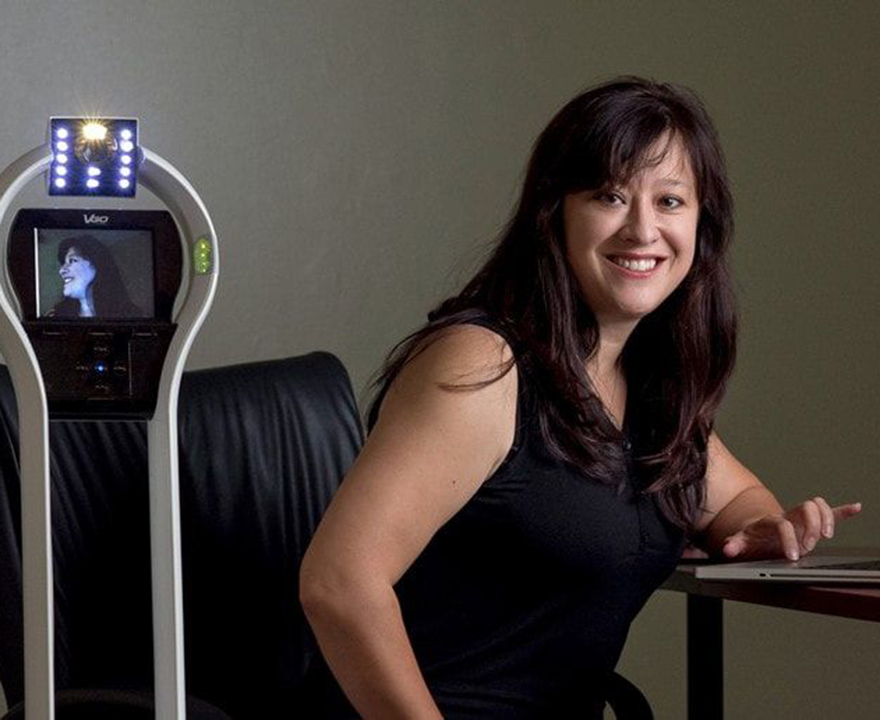Transforming the role of robots in society

Transforming the role of robots in society
- September 10, 2020
- UC team receives $1 million grant from National Science Foundation's National Robotics Initiative to develop improved telepresence robots for children with medical conditions and disabilities
-----
While many are juggling new home-schooling responsibilities in response to the COVID-19 pandemic, the parents of children who are at a high risk of infection – more than 2.5 million across the nation – face a starker reality: When communities re-open, their child will not return to in-person schooling.
Veronica Ahumada-Newhart, Ph.D., a scientist at the University of California, Irvine, School of Education alumna, and former postdoctoral scholar in social sciences, has dedicated the past seven years to studying robot-mediated learning and inclusion for this population. In August, Ahumada-Newhart was named principal investigator on a $1 million collaborative award from the National Science Foundation (NSF) National Robotics Initiative (NRI) to create new robots for this purpose.
“With COVID-19, the need for improved design of robots and environments to facilitate robot-mediated social inclusion and connectedness is even greater,” Ahumada-Newhart said.
The UC-collaborative project team includes Distinguished Professor Jacquelynne Eccles and professor Mark Warschauer, both from the UCI School of Education, and associate professor Laurel Riek, Department of Computer Science and Engineering and Emergency Medicine at the University of California San Diego.
“This work could have profound effects for society and the broader inclusion of people with medical conditions and disabilities in education and other aspects of life,” Ahumada-Newhart said. “Our UC multi-campus collaboration is aligned with the focus of the NRI program on ubiquity, which in this context means integration of co-robots to assist humans in every aspect of life.”
Ahumada-Newhart’s earlier work led to the creation of the Presence and Social Connectedness (PASC) framework that details a theoretical and qualitative approach to the robot-mediated social presence of children.
“The PASC framework builds on development, motivation, and identity in organic environments and extends these concepts to robot-mediated environments,” Ahumada-Newhart explained.
This framework will inform studies on the newly funded NSF NRI project.
At UC San Diego, Riek's team will focus on designing accessible, inclusive control systems for telepresence robots, with a focus on remote telemanipulation. This is an exciting addition to currently available telepresence robots as many children in earlier studies requested an arm/hand to touch and move things in their school environments. This system will support easily adapting the robots to meet the needs of children.
The research team will also pioneer a new inclusive robotics curriculum to support children with disabilities entering the STEM workforce. This curriculum will be publicly available online and will feature introductory concepts in robotics as well as information on the evolving roles of robots in our society. This curriculum will be developed with input from all stakeholders, including participants who use a robot to attend school or have a robot in their classroom.
The project will transform learning and development for children who are restricted to their homes, and is particularly timely for the COVID-19 era. The work will generate best practices and guidelines that will have an impact on children’s understanding of disability and difference across the human community. The addition of a robotic arm will increase access and inclusion through capabilities to play with friends and engage in “hands-on” learning activities. Findings from this project will have profound longitudinal effects for society and the broader inclusion of people with medical conditions and disabilities in education and other aspects of life.
For Ahumada-Newhart, the robots are a tool to create a more inclusive society.
“Right now, it is robots. In the future, it may be holograms,” Ahumada-Newhart said. “As the technology evolves, the focus on human-centered approaches remains. We must support a more inclusive culture where we include all members of our communities, where we stop seeing illness and disability pushed aside, and where people are no longer told to ‘just stay home and come back when you’re better.’”
-Ryne Hodkowski, UCI School of Education
-photo by Steve Zylius/UCI
-----
Would you like to get more involved with the social sciences? Email us at communications@socsci.uci.edu to connect.
Share on:


